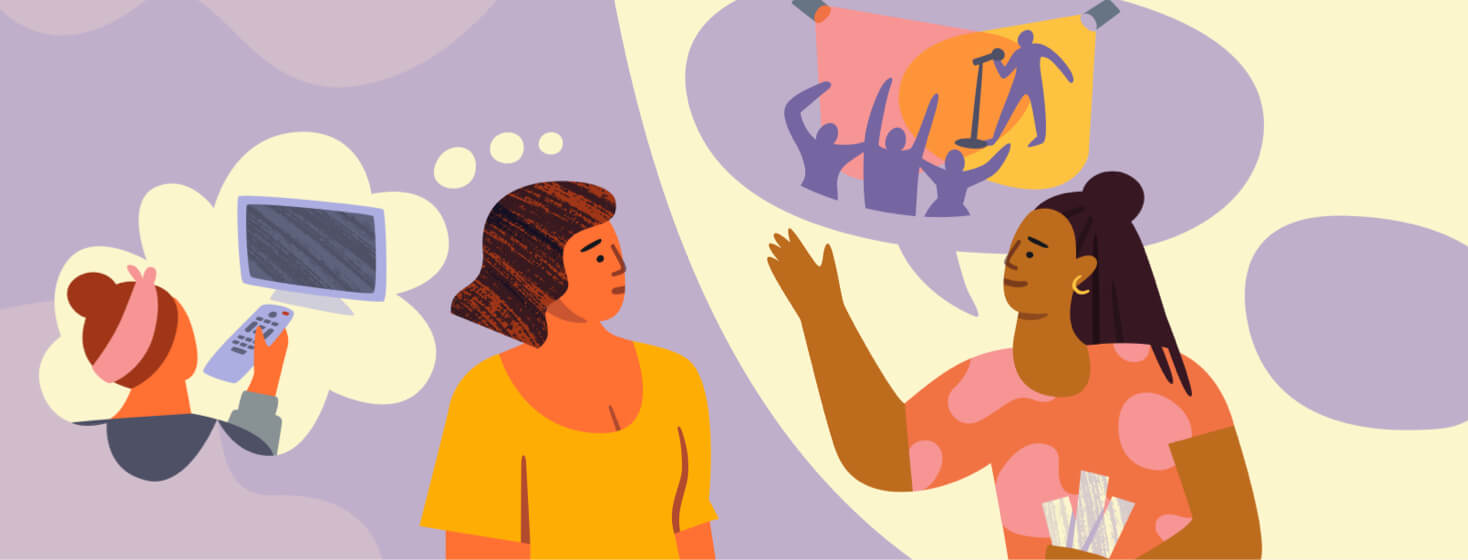Maintaining Friendships as an Introvert with Chronic Pain
It can be hard to be an introvert. There have been times when I come away from a social gathering completely drained. And when asked, sometimes everything in me wants to say 'no' to hanging out with others so I can enjoy spending time by myself.
Having psoriatic arthritis seems to heighten my introverted nature. While there are times that I don't want to go out, there are many more times that I would like to, but I don't feel well enough.
Psoriatic arthritis introverts unite!
When I'm in a flare and living in survival mode, the last thing I often want to do is see others outside of my immediate family. Even when I am having a good day, I'm afraid of my energy getting zapped away because a day out was more exhausting than anticipated.
There are times when I genuinely have to force myself not to isolate myself from others. It's not purposeful by any means. It's just difficult to deal with feeling drained physically and mentally. But over the years, I've learned a few things I have to do for the sake of my mental and emotional health.
I have to try
The first thing I came to terms with is sometimes I have to force myself to be social to keep friends. Even the best of friends can have a hard time dealing with constant cancelations.
I've felt the temptation to cancel on friends on a day where I'm not flaring but still not feeling great. On those days, my knee-jerk reaction is to stay home and protect my energy. But I've made myself go and try, even if I end up leaving early. More often than not, it ends up going better than I expected, and my real friends appreciate that I made it and gave it my best shot.
If I'm not feeling well and can't make it to their events, I try to schedule my own. It might mean cleaning the house as best I can, ordering food, and having everyone over for a board game night. Or even a group phone call. People appreciate being reached out to.
I have to speak up, even if I'm nervous
I get why this point may be very uncomfortable for some: I would faster jump off a cliff than ask someone for accommodations. Sometimes I hope others will assume my limitations or know not to invite me on a 7-mile hike. But people are not mind-readers: they can be aware that you're in pain, but they won't know how to help you until you tell them.
So let others know your limitations and what would make getting together more accessible to you. True friends are often happy to help- whether that means moving a movie date from a theater to your living room or helping you rent a wheelchair for an outing.
I remind myself that my needs are valid
Sometimes I feel like I'm annoying or inconveniencing others by voicing my needs, such as requiring extra rest stops. But I had to accept that my limits are necessary and entirely within reason.
I've only recently become more open to using a wheelchair during long outings with friends. At first, I was very insecure; I was nervous about them judging me or that the wheelchair would be inconvenient. But it has allowed me to go on adventures, last all day, and stay in a positive mood because I'm not in agony.
Real friends will understand and will be happy to include you.
I accept that friends will come and go
After doing my part by trying to reach out and speaking up, I had to accept I'm still going to lose some friends- and that's okay. In fact, it can be a good thing.
Sometimes, friends come and go due to the 'usual' reasons we talk about- the ones we lose after canceling one too many plans or who altogether disappear after a diagnosis. But there may be times you have to shake the friends who don't get it and cause you to feel negative. And that's all okay and normal- relationships evolve and change with time for everyone.
Chronic pain can be isolating, so I have to do my best to reach out at times.

Join the conversation